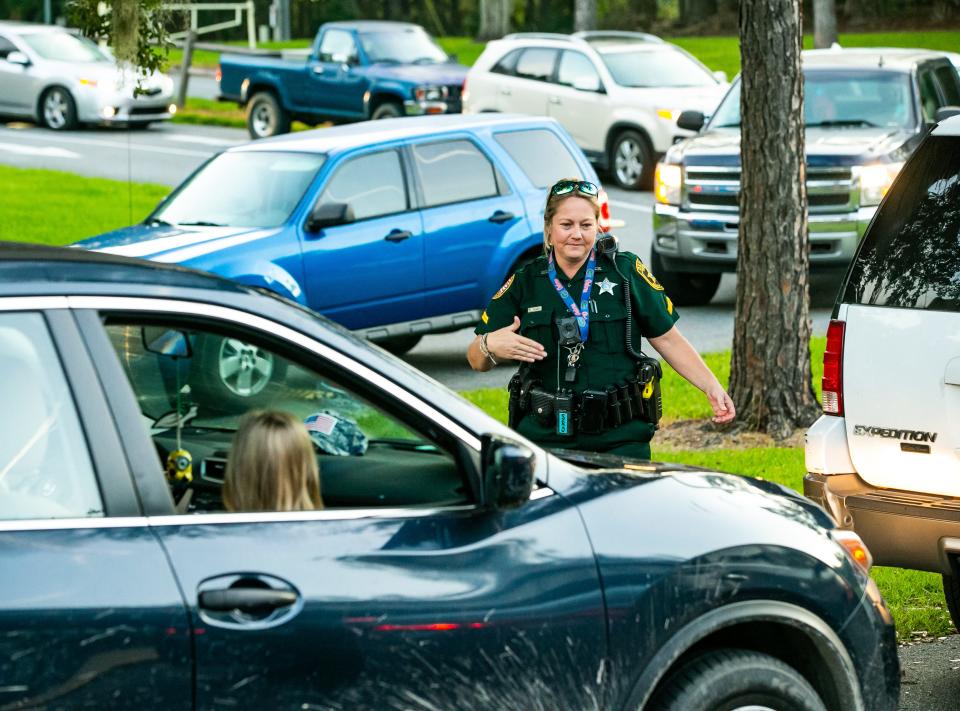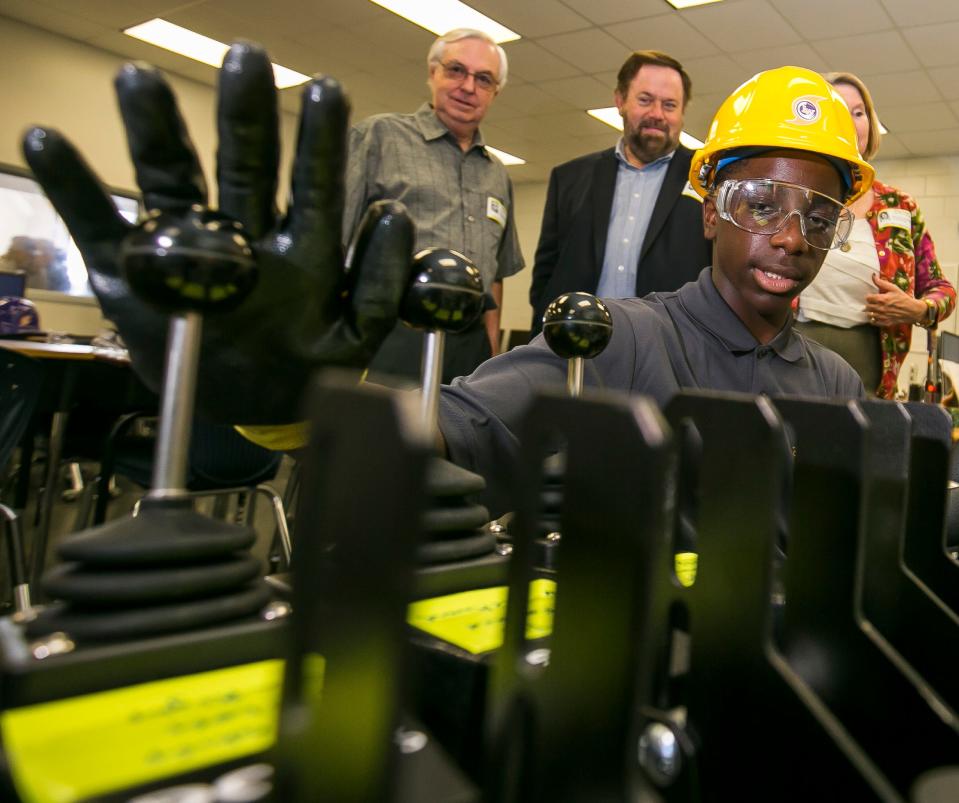Local property tax needed again for critical programs, most on Marion school board agree
The Marion County School Board agreed Thursday to let the voters decide later this year whether a 1-mill school tax is needed for a third time to continue funding programs such as music, art, physical education, vocational programs and school safety.
The 1-mill tax, which adds $1 per every $1,000 of taxable property value to a tax bill, was approved in 2014 by nearly 52%, and in 2018 by a whopping 72%. An owner of a $250,000 home, with $100,000 in homestead exemptions, would pay $150 annually.
Four of five members of the Marion County School Board agreed to allow the voters decide whether to renew the tax, which generates about $23 million annually. The current four-year tax expires June 30, 2023.
2018: 72% of voters approve 1 mill school tax
2014: Supporters speak out for 1 mill school tax
2021: Marion County School Board member Beth McCall resigns after she moved out of District 2
As part of the referendum, an Independent Citizens Referendum Oversight Committee will be used to oversee the spending. Each year since 2014, the committee has issued a report on its review of how the money is spent.
The board will formally vote, likely next month, whether to place the referendum on the general election ballot in November. Once that vote is held, the issue must then be approved by the Marion County Commission, which usually is a formality.
New member Don Browning believes the district could cut 10% of its $750 million budget to more than make up for the $23 million the tax generates. He said he would not support putting the measure on the ballot again this year.
Browning said that even if the district cut expenses by only 5%, that would save more than $37 million. However, financial officials have noted that cutting a flat percentage from a school district's budget is not really feasible.
There are dozens of pots of money. Some comes from state and federal grants, which means the money must be used for specified programs and savings cannot be diverted to other programs.
Another example is federal money for food service. If money is cut there, it must remain in that fund. It must eventually be used or paid back to the federal government. Capital money for construction, vehicles and other such costs, cannot be spent for operations.

Then there are programs that the state has mandated over the years that have to be funded in accordance to Florida law.
Theresa Boston-Ellis, the district chief financial officer, said the operating budget for 2021-22 is only $368.7 million and more than 80% of that goes to salaries. That $368.7 million is $45.6 million more than the operation budget five years ago.
Boston-Ellis, whose department has won a prestigious national finance award for 21 consecutive years, said that state mandates, salary increases and rising expenses has eaten up nearly all of the extra funds year after year.

Boston-Ellis said that $13 million of the new money must be paid to private schools as part of McKay and Family Empowerment scholarships. That $13 million is included in the school district's budget and is then paid out to the private or charter schools that parents have chosen for their children.
Another example is that Gov. Ron DeSantis ordered that school districts statewide raise teacher salaries. Another $13 million issued by the state must go to the teacher salary increases.
The end result, after all the rising costs of doing business, inflation and other factors are added in, the school district is not in a significantly better place than it was coming out of the national recession.

Also, officials have said, each year the state sets the required local millage lower to almost offset the rise in property values. If the district chose to implement a higher required local effort than what the state sets, the district would lose millions in state funding.
Though Vice-Chairman Allison Campbell also believes that cost reduction may need to be the answer, she said Tuesday that the measure should be put before the voters to determine if they want the additional tax to pay for the programs.
Board members Kelly King and Nancy Thrower, as well as Chairman Eric Cumming, all agreed the funding is needed to continue the same services as the district provides now, especially as it relates to art, music, physical education and vocational programs.
![North Marion High School marching band flutists Libnny Vasquez, left and Nova Lopez, right, practice with the rest of their band members last August. [Doug Engle/Ocala Star Banner]2021](https://s.yimg.com/ny/api/res/1.2/ysXg1b89_zcrFQ1PjJ_bCQ--/YXBwaWQ9aGlnaGxhbmRlcjt3PTk2MDtoPTYyNQ--/https://media.zenfs.com/en/ocala-star-banner/7255f66081e4f67d613cda577a74b865)
Last week, former board member Beth McCall appeared before the board at the request of Cummings. McCall, who was elected in 2016 and 2020, had to resign last year when she moved out of her district. Browning was appointed by DeSantis to replace her.
In 2018, McCall and area business leaders traveled Marion County to explain to voters the importance of the referendum. The end result was that the referendum passed with 72% approval. McCall said she would play the same role in promoting it this year.
The main difference between 2014 and 2018 is that school safety was added in 2018. This year's ballot language, which will appear on the general election ballot in November per a new Florida law, will be exactly, or very similar to, the one submitted for the 2018 election.
Joe Callahan can be reached at (352) 817-1750 or at joe.callahan@starbanner.com. Follow him on Twitter @JoeOcalaNews.
This article originally appeared on Ocala Star-Banner: Majority of Marion school board says 1-mill tax needed for students

